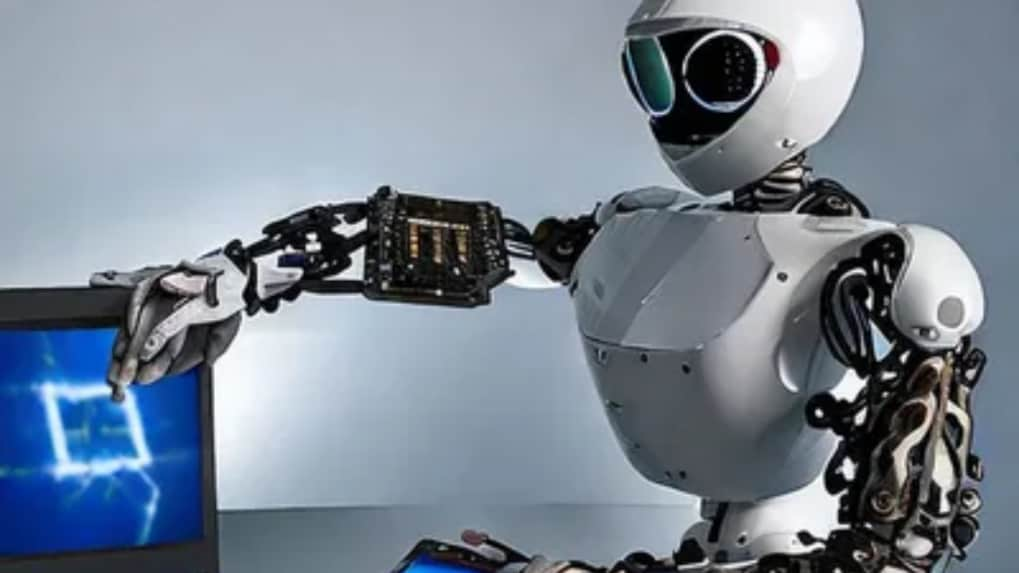Today in AI | Sam Altman on AI misuse | Elon Musk says AI could outdo humans | Companies reconsider AI drive
Storyboard18 brings you the top AI news of the day.
ADVERTISEMENT
The world of Artificial Intelligence has only begun to affect human lives. In times like these, staying up-to-date with the AI world is of utmost importance. Storyboard18 brings you the top AI news of the day.
AI misuse could trigger COVID-style pandemic, warns OpenAI chief Sam Altman
OpenAI chief executive Sam Altman recently raised concerns that advanced artificial intelligence tools could be misused to engineer a pandemic on the scale of COVID-19. The warning was issued during a discussion on the potential downsides of AI, where it was noted that the growing application of AI in biological research carries significant risks if not properly managed. Altman spoke about this in an interview with Tucker Carlson.
The rapid improvement of AI models in biology was emphasised, that could make it possible to simulate or design pathogens with dangerous efficiency. While these same capabilities could accelerate breakthroughs in medicine, such as drug discovery and genetic research, the possibility of misuse has been highlighted as a pressing challenge for the industry.
McKinsey counters AI job fears with 12% graduate hiring boost in 2026
McKinsey & Company will increase its intake of entry-level staff in 2026, pushing back against predictions that artificial intelligence will shrink graduate opportunities. The consulting firm told reporters it plans to expand its North American workforce by 12% next year compared with 2025, according to Reuters.
Eric Kutcher, senior partner and chair of McKinsey North America, told Reuters that the firm currently employs between 5,000 and 7,000 non-partner staff in the region, a figure that could rise by 15–20% over the next five years.
The announcement underlines McKinsey’s determination to continue hiring young talent even as the wider job market cools. While many firms have slowed recruitment amid economic volatility, McKinsey continues to actively recruit on college campuses, The Wall Street Journal reported.
Klarna reconsiders AI drive, moves to rehire human staff
Klarna, once hailed as one of Europe’s most aggressive adopters of artificial intelligence, is now pulling back from its heavy reliance on the technology and turning once more to human employees.
Chief executive Sebastian Siemiatkowski acknowledged that the Swedish “buy now, pay later” lender may have gone too far in using AI to cut costs, with unintended consequences for product and service quality. He told Reuters that they may have over-indexed a little bit, and then in the last six months they have been trying to course correct.
The fintech had previously made sweeping cuts, axing thousands of jobs and replacing functions with AI-driven systems. Its AI chatbot alone was reported to be doing the work of 700 employees, significantly reducing customer response times. In May, Klarna went further, using an AI-generated avatar of its CEO to deliver quarterly earnings, alongside an interactive avatar for customer hotlines, as reported by Reuters.
Elon Musk predicts AI could surpass human intelligence by 2030
Elon Musk has made one of his starkest forecasts yet on artificial intelligence, claiming that AI could be more intelligent than any individual human by 2026 and could potentially outthink the combined intelligence of all humankind by 2030.
Speaking on the All-In podcast, the Tesla and SpaceX chief reiterated both his optimism and deep concerns about the pace of AI development. His comments add weight to ongoing debates over how soon so-called “human-level AI” might be achieved, with experts offering widely differing timelines.
Musk’s remarks, however, serve as a reminder of the growing urgency around AI governance. His projection aligns with concerns that society may be underprepared for technologies advancing at breakneck speed.

